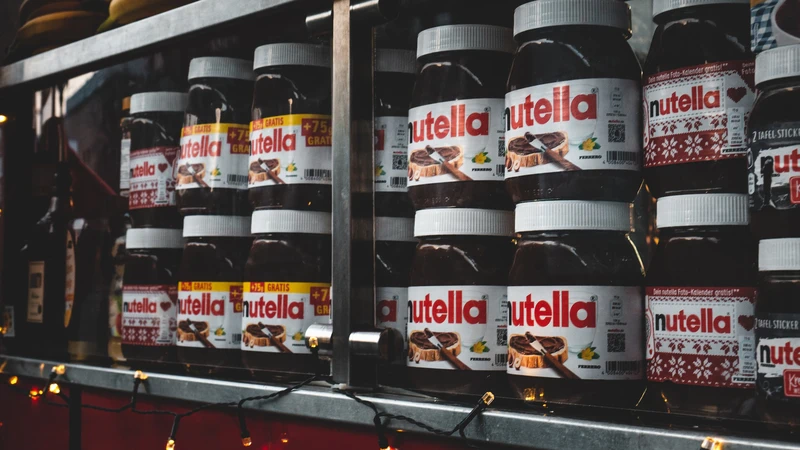What are we really eating? What does our plate really contain? What impact does our food have on the environment, on society and on our health? In a way, we’d rather not know. But as it is wiser to be aware of it, let’s enlightens us a little more on the subject by addressing 10 points that do not really whet the appetite.
1. Pesticides used in our food are an environmental disaster
Whether for the production of fruits and vegetables, or even cereals (most of the time grown to feed animals… which we then eat), pesticides (insecticides, fungicides, herbicides…) as well as chemical fertilizers considerably harm the the life of the soil, to biodiversity, to the purity of water, up to the gradual disappearance of bees, which, let us remember, are necessary for plant reproduction by pollination… and therefore for our food.
2. Non-organic fruits and vegetables can be harmful to your health
We are recommended to eat at least 5 fruits and vegetables a day. Indeed, from a strictly dietary point of view, we understand that a minimum dose of fiber and vitamins is recommended. Only, insofar as, for example, an apple undergoes more than thirty chemical treatments in its life, ingesting 5 fruits and vegetables from conventional agriculture induces an excess of the quantities of these chemicals supposedly tolerated by our organism. We should therefore rather talk about 5 organic fruits and vegetables per day!
3. The living conditions of animals in factory farms are sometimes appalling
Every year, at Christmas time, you hear more or less virulent criticism of the force-feeding of geese and ducks for the production of foie gras. But the other animals in all this? Factory farms use unscrupulous and even less ethical methods to fill our plates. Tiny living space, lack of access to the outside, removal of beaks or teeth (to avoid problems due precisely to overcrowding)… Ham or foie gras, same fight?
4. Factory-Farmed Meat Is Loaded With Antibiotics
” Antibiotics are not automatic ” ? It depends for whom ! Because in industrial farms, the administration of antibiotics to animals is almost systematic. However, if these treatments may prove to be necessary for curative purposes, most of those given are for preventive purposes, in order to avoid diseases linked in particular to the promiscuity of animals. By eating meat, we therefore “automatically” ingest antibiotics, which are supposed to be harmful with repeated use.
5. Aluminum, ubiquitous in the food industry, can be dangerous to your health
In high doses, aluminum would be dangerous to health, especially when ingested. If tolerated at low doses, studies have shown that at high doses, aluminum can harm health by causing neurological disorders, a link being also suspected between aluminum and the development of the disease of ‘Alzheimer’s. However, it is found everywhere in the food industry, from soda can type containers to aluminum foil, of course, used for example for papillotes, through certain additives and industrial foods such as biscuits.
6. GMOs can be present on our plates although they are prohibited in France
The lack of perspective on genetically modified organisms (GMOs) does not ensure the absence of danger to human (and animal) health. However, it is certain that they may indirectly produce the same harmful consequences for the environment as herbicides, since these can be used at will on plants specifically designed to resist them. However, if GMO crops are prohibited in France, we nevertheless regularly find them on our plates, via the importation of North American, Latin American or Chinese cereals, whether intended for animal feed (therefore the meat we eat) or directly processed into human food preparations.
7. Industrial foods are too fatty, too sweet and too salty
Ready meals, although they contain vegetables or are presented as balanced preparations, are often very high in salt, sugar and (bad) fats. Salt, both flavor enhancer and preservative, is indeed added in large doses to most of these dishes, even (or especially) sweet ones! Unfortunately, it is harmful to health, notably creating hypertension. Ditto for sugar, surprisingly very present in savory preparations, and which is the cause of many cases of obesity or diabetes. Finally, many prepared dishes of the mixed salad type contain very fatty sauces, despite appearances! Morality: it is better to cook your own dishes.
8. So-called low-fat products are often fattier or sweeter
So-called low-fat products have become very common in supermarkets. Dairy products, savory or sweet preparations, confectionery… They are everywhere. However, the legislation allows manufacturers to choose how the product will be reduced: sugar, salt or fat. As a result, we end up, for example, with products that are low in fat but which are sweeter, or products that are low in sugar but which are fattier… Beware of labels!
9. Bleach-washed meat may soon be on our plates
In the United States, carcasses and poultry can be sanitized with bleach-type products in slaughterhouses to prevent the proliferation of bacteria after packaging. Although in Europe, such a practice is currently prohibited, it may be possible in the future for the United States to sell to Europeans, including France, meat disinfected in this way, within the framework of the TTIP. ( Transatlantic Trade and Investment Partnership ) or in French, the Transatlantic Trade and Investment Partnership (PTCI), more often called TAFTA.
10. Our modern diet is making the world more hungry
The modern agricultural system and our (Western) way of eating indirectly contribute to the aggravation of the lack of food in the poorest countries. Indeed, most of the agricultural land used on the planet is used to produce food for livestock. However, insofar as we consume much more meat than our nutritional needs require, this grabbing of land to feed animals is detrimental for those who do not have enough to eat. Thus, eating less meat in the richest countries would, according to some, solve the problems of undernutrition in the poorest countries.













